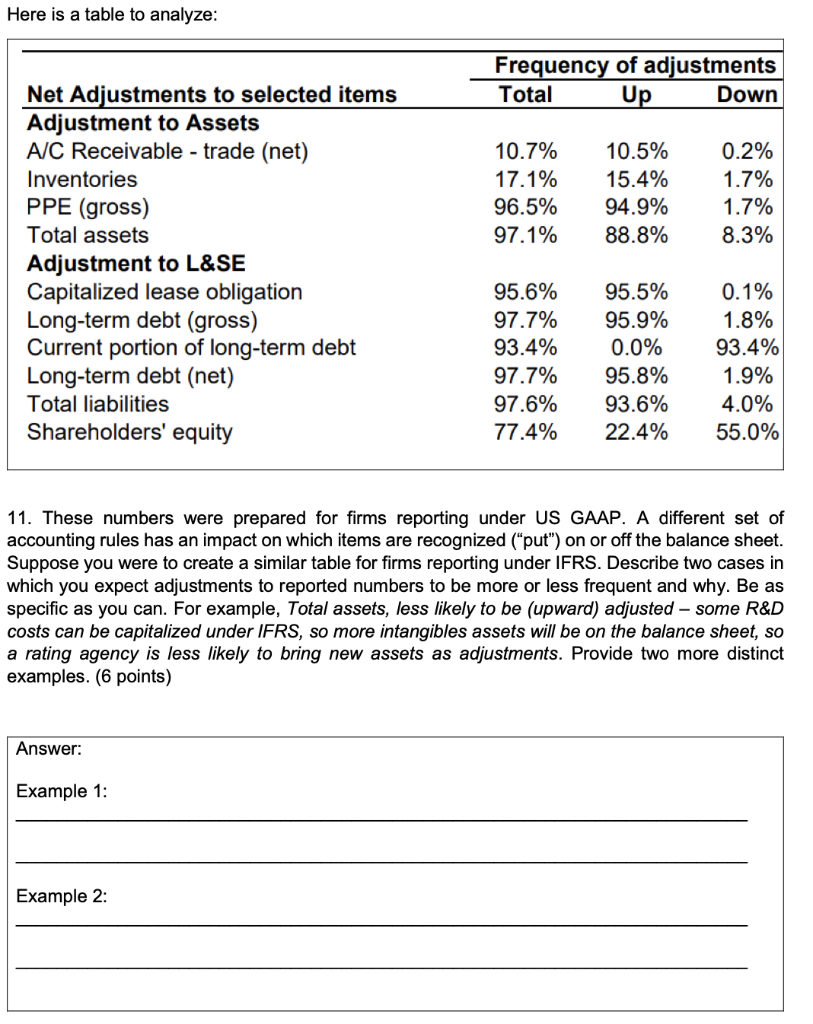Answered step by step
Verified Expert Solution
Question
1 Approved Answer
Here is a table to analyze: Frequency of adjustments Total Up Down 10.7% 17.1% 96.5% 97.1% 10.5% 15.4% 94.9% 88.8% 0.2% 1.7% 1.7% 8.3% Net

Step by Step Solution
There are 3 Steps involved in it
Step: 1

Get Instant Access to Expert-Tailored Solutions
See step-by-step solutions with expert insights and AI powered tools for academic success
Step: 2

Step: 3

Ace Your Homework with AI
Get the answers you need in no time with our AI-driven, step-by-step assistance
Get Started


